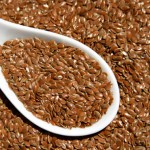
The Perfect Formula Diet awards for plant-based happenings in 2011. The "top 10" list with 11 awards for an important year for the plant-based world.
Actually Eleven of the Top Good, Bad, and So-What Legacies of 2011
As 2011 speeds to its end, it’s time to reflect on the top events, organizations, trends, and people that will have a lasting impact on American food choices. The Perfect Formula Diet (PFD) 2011 awards point the way to making 2012 a better year for you and the planet.
THE BEST FOOD OF THE YEAR:
Kale – Kale was all over the media in 2011. This vegetable is universally recognized as dense with minerals, vitamins, phytochemicals (beneficial nutrients found only in plants), and fiber – all with barely any calories. WebMD calls kale “the queen of greens” and notes it is growing in popularity.
A recent Huffington Post blogger calls kale “the new beef.” This is way too kind to the beef industry. However, the point is that you can get all the nutrients in animal foods by eating kale, in a way that is infinitely healthier for you and the planet. Kale comes in many varieties and colors, with flat or curly leaves. You can enjoy kale raw or include it in just about anything you cook. Find this easy-to-grow powerhouse in farmers markets and supermarkets all over the country.
MOST FUN WAY TO CONSUME THE BEST FOOD OF THE YEAR:
Green smoothies– In recent years, green smoothies are leading the trend to have lots of fun with healthy foods. While green
smoothies gained popularity several years ago, this drink shows every sign of attaining mainstream acceptance in 2011.
Green smoothies incorporate green leafy veggies (such as kale, spinach, or collard greens) in a blend with sweeter fruits that provides much of the flavor. However, the veggie leaves provide the color, making the drink green.
You can find endless recipes to experiment with until you find the smoothies you most enjoy. A recent google search of “green smoothie kale” yielded 343,000 results. If this is overwhelming, start with the site fatfreevegan.com for some great ideas. Expand from there with other plant-based recipe sites and cook books.
THE MOST DANGEROUS “HEALTH” FOOD OF THE YEAR:
“Wild-caught” salmon – Unless you were living in a tree with no media access in 2011, you could not escape the advice to eat more fish. “Wild caught” salmon is the most highly recommended. When you hear something a million times it must be true, right? Not!
In fact, industry and government are putting out severely skewed and dangerously incomplete “information,” then the popular media parrots the advice that people want to hear. Physicians are too busy to sort through all the thousands of published studies on fish, and fall victim to the fishy hype along with their patients.
Salmon, along with just about all fish, are full of saturated fat, cholesterol, persistent organic pollutants and many other health-

Grind your flax seeds and eat two tablespoons a day sprinkled on your food for a safe, healthy source of omega-3s. You can even add to your green smoothie. Skip the salmon, wild-caught or otherwise (you never know, since fish are often labeled inaccurately).
killing contaminants, mercury, nasty bacteria, and worm larvae, to name some of the threats to your health from this misrepresented food. For more information, check out this post on ten reasons that seafood is neither safe nor appetizing. Omega-3 fatty acids are important, but the best food to get them from is ground flax seeds.
MEDICAL HYPE OF THE YEAR:
Lipitor Goes Generic – Lipitor, the top-selling drug in the world, had 2010 global sales of $10.7 billion, with $7.9 billion of that figure coming from US consumers. Such income buys a lot of advertising, which is exactly where Pfizer has thrown a sizable chunk of its revenues. The media swarmed all over the story of Lipitor being available as a generic on November 30, 2011.
All this hype left consumers with two ideas. One was at least a small seed of doubt that the generic would have the same activity as the brand name. Yet under strict rules from the FDA, generics and name brands must have the same active ingredient. Generics are well accepted and there is no evidence that the generic forms of Lipitor would not have the exact same biological activity as the name brand. Yet Pfizer has created a $4 copay card for Lipitor, with the effect of confusing both patients and pharmacists.
Second, all this hype makes Lipitor seem desirable and important. Yet clogged blood vessels can be cleared and cholesterol
plummeted to levels well under what drugs commonly achieve using only a whole foods, plant-based diet. Expensive medications with dangerous side effects are totally unnecessary and serve only to distract doctors and patients from the easy, costless dietary solution.
NUTRITION YAWNER OF THE YEAR:
Dietary Guidelines for Americans 2010 – Wait, you think, this is a 2011 list. Yes, but these Dietary Guidelines are such a yawner that when the 2010 update was not released until 2011, no one really cared. The 2010 Guidelines are mired in animal foods just as previous versions were. Americans are instructed to eat foods that make them fat and sick. Dairy and fish are prominently featured. Although this year includes a vegan adaptation of the guidelines, the USDA version of a vegan diet has so many dangerous issues that anyone trying to follow it will almost certainly give up.
Instead of relying on science for direction and clear language for communication, the Guidelines are a testament to the power of multi-billion dollar corporations (that also happen to be huge political donors). Even the industries that most threaten the health of Americans must be protected and promoted. Same old, same old, same old useless, confusing, hazardous advice and obscure language from our friendly government agency.
NUTRITION INSPIRATIONAL PROJECT OF THE YEAR:
Meals For Health – With bold vision, the nonprofit EarthSave partnered with the Sacramento Food Bank to show that low-income people will enthusiastically adopt a whole foods, plant-based diet. Leading plant-based physicians, dietitians, and educators shared their time to make the project successful. The Whole Foods Sacramento store donated piles of healthy foods. The results are astounding.
Most inspiring, the people in the program opened their hearts and minds to the food and the message of plant-based eating. Their stories of total recovery from illness, often after decades of suffering and mountains of medications, can move you to tears. All the participants wanted to stay on their new eating plan after the initial 30-day pilot. Does this sound like a lifestyle of deprivation?
NUTRITION SUSPENSE OF THE YEAR:
Results of the Whole Foods Immersion Program for Team Members – Since 2010, Whole Foods has been offering its employees (team members) an unbeatable health opportunity. After passing an application process, those with serious chronic medical conditions have a choice of attending one of three immersion programs to learn to thrive on a whole foods, plant-based diet. We can surmise this program has been successful and cost-effective, based on the fact that Whole Foods continues to offer it.
Yet data have yet to be publically released. The results could transform employer-sponsored wellness programs and help millions of American workers. Whole Foods, let’s get this information out there! Hopefully 2012 will be the year the suspense ends, and the data will be a story of the year no doubt.
TV SPECIAL OF THE YEAR:
The Last Heart Attack – In a groundbreaking move for mainstream TV documentaries, CNN aired the documentary The Last Heart Attack. In this one hour report, Dr. Sanjay Gupta speaks with former President Clinton about his remarkable health transformation after starting a whole foods, plant-based diet. Dr. Caldwell Esselstyn relates the secret of becoming heart-attack-proof. Two contrasting reality patients share their stories of easy success via diet and scary complications via surgery.
Other TV shows brought plant-based nutrition and health information to the public as well, making 2011 a noteworthy year in making animal-free diets understandable and accessible.
WILDLIFE DEFENDER OF THE YEAR:
Sea Shepherd – No 2011 legacy list would be complete without recognition of the deteriorating life support system of our planet. To discuss major 2011 victories, disappointments, and disasters in environmental issues would be a list of its own. In every catastrophe in this area, wildlife suffers first and most, from palm oil plantations that are killing orangutans, to polar bears starving and drowning from climate change, to frogs chemically castrated by persistent organic pollutants.
The 2011 PFD Award for Wildlife Defender of the Year goes to Sea Shepherd Conservation Society. Led by the awesome Captain Paul Watson, this group sends a courageous crew to the Antarctic every year to stop the Japanese whaling fleet from slaughtering whales

The Sea Shepherd crew risks their lives protecting helpless whales in Antarctica. And these tough men and women are powered by a vegan diet.
in the name of “science,” but actually to make money from selling whale meat.
The unstoppable Sea Shepherd crew risks life, limb, and freedom to protect the helpless whales. What’s more, their ships serve vegan food to the hungry defenders. No “some animals count and others don’t” in this fleet.
CALL-TO-ACTION OF THE YEAR:
Forks Over Knives – This feature film examines the profound claim that most, if not all, of the degenerative diseases that disable and kill people in developed countries can be controlled, or even reversed, with a whole foods, plant-based diet. Roger Ebert calls the movie “A film that can save your life.”
The film has awesome graphics that make the science understandable and compelling. Articulate reality patients share their personal journeys with warmth and humor. These patients easily ditched a laundry list of medical problems, including heart disease, diabetes, hypertension, cancer, and
obesity simply by changing what they eat.
You can view this movie’s hard hitting call-to-action on DVD, Blu-ray, at a house party, or by streaming the video.
CHANGEMAKERS OF THE YEAR:
The Plant-Based Community – The plant-based community is growing daily, with every member playing a role in promoting healthy eating. The plant-based medical professionals and researchers lead the way through science and patient treatment. To name just a few: Drs. T. Colin Campbell, Caldwell Esselstyn, Neal Barnard, Joel Fuhrman, John McDougall, Pam Popper, Terry Mason, Michael Greger, Alona Pulde, Matt Lederman, Michael Klaper, Don Forrester, Baxter Montgomery, and many other pioneers too numerous to list.
Authors of books on plant-based nutrition replace dangerous nutrition myths with must-know facts. Plant-based dietitians are a force for change. Vegan celebrities and athletes show it is cool to eat animal-free. Don’t forget the authors of plant-based cookbooks, the instructors of vegan cooking classes, and chefs in vegan restaurants who make the science jump from page to delicious plate.
Here’s to anyone with a vegan business, radio show, magazine, TV series, film, DVD, podcast, Facebook postings, tweets, conference, web site, or blog. People who give out samples of vegan food or host an animal-free meal, run a vegetarian society, walk to raise money for farmed animals, operate a farmed animal sanctuary, or volunteer or work for a vegan nonprofit. Undercover investigators, who risk their lives to bring the truth about factory farming to the public. Looking at the future, let’s honor the folks who work tirelessly to educate kids on plant-based nutrition and bring them healthy school lunches.
Kudos to the community members of all ages and in every location who quietly eat plant-based every day and serve as role models for how easy and enjoyable this can be. Together, we weave a tapestry of change and joy. Every person is essential.
The plant-based community is open, and you are welcome to join. Let’s make 2012 a healthier year for people, animals, and the planet. It starts with your choice of what to eat every day.
If you enjoyed this post, you might want to learn why people love a plant-based diet.
Intrigued? Now you can use our Whole Foods Blog Finder to target informative, fun postings on whole foods, plant-based nutrition. Quick information at no cost!
Blog posting by Janice Stanger, Ph.D. Janice authored The Perfect Formula Diet: How to Lose Weight and Get Healthy Now With Six Kinds of Whole Foods. This easy-to-follow eating plan is built on a whole foods, plant-based diet that can prevent, and even reverse, most chronic disease as well as get you to your perfect weight. Janice is already looking forward to the 2012 awards.
Tags: Captain Paul Watson, cardiovascular disease, Climate change, Dietary Guidelines for Americans, Dr. Baxter Montgomery, Dr. Caldwell Esselstyn, Dr. Joel Fuhrman, Dr. John McDougall, Dr. Michael Greger, Dr. Neal Barnard, Dr. Pam Popper, Dr. T. Colin Campbell, Dr. Terry Mason, EarthSave, environmental degradation, fish, Forks Over Knives, getting healthy, green smoothies, Janice Stanger, kale, Lipitor, making a difference now, Meals for Health, phytochemicals, President Bill Clinton, reverse chronic disease, Sanjay Gupta, Sea Shepherd, The Last Heart Attack, vegetables, weight loss, Whole Foods Immersion Program, whole foods plant-based diet









What a great list Janice! Thanks for putting together so many resources for everyone to check out. May 2012 be an even better year building on the momentum of the plant-based community of 2011.